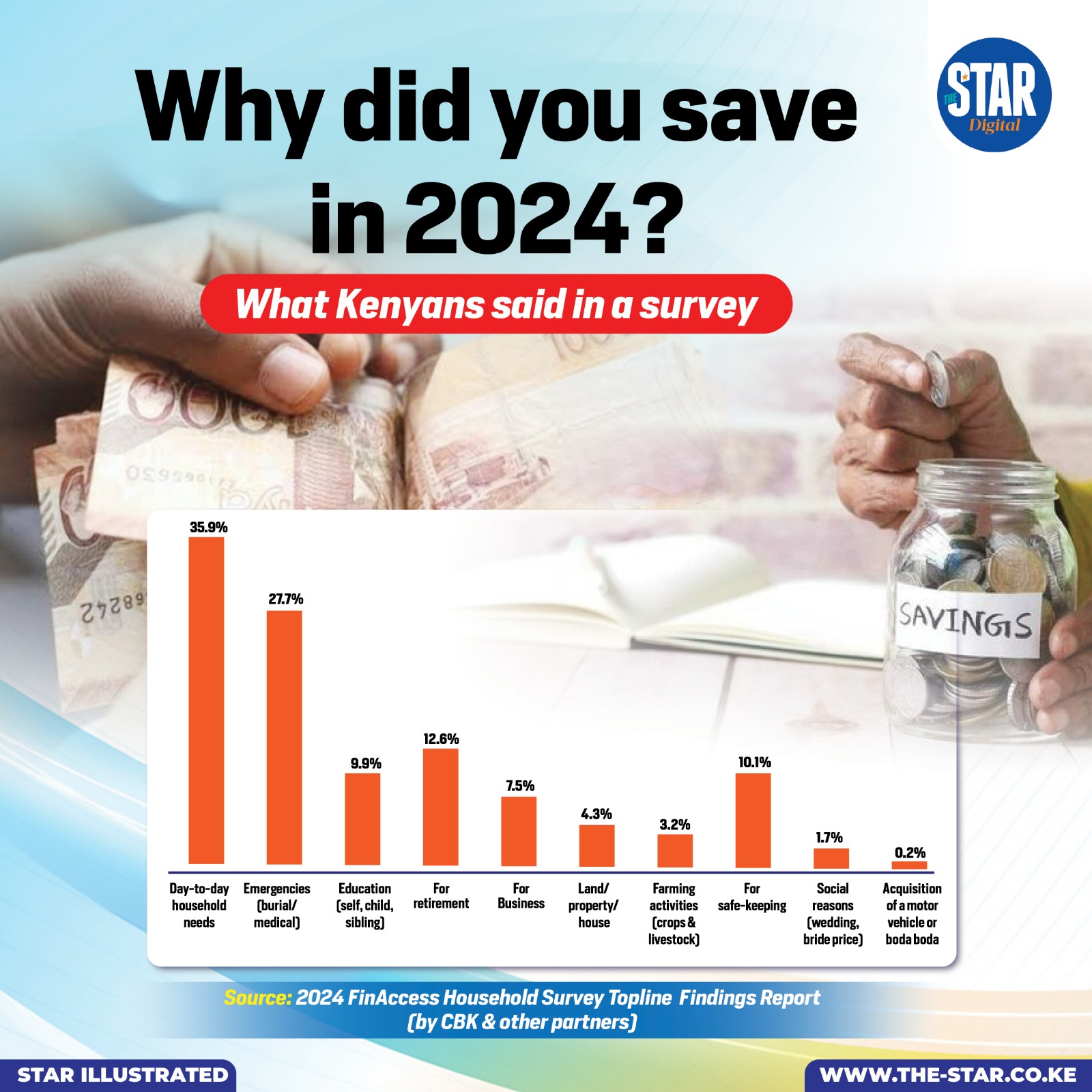
Why some Kenyans stopped saving in 2024
18.2 percent of respondents mentioned loss of income.
Education needs accounted for 9.9 percent of savings, while 12.6 percent saved for retirement.
In Summary

Audio By Vocalize

Survey respondents highlighted several key reasons for saving. The majority, 35.9 percent, save for day-to-day needs, followed by 27.7 percent who save for emergencies.
Education needs accounted for 9.9 percent of savings, while 12.6 percent saved for retirement.
Business-related savings were reported by 7.5 percent, while 10.1 percent saved simply for safekeeping.
A smaller portion, 4.3 percent, saves with the goal of purchasing land, property, or house improvement.
These findings
suggest that the savings culture is primarily driven by
immediate needs, with a strong emphasis on day-to-day
expenses and emergency preparedness.

18.2 percent of respondents mentioned loss of income.